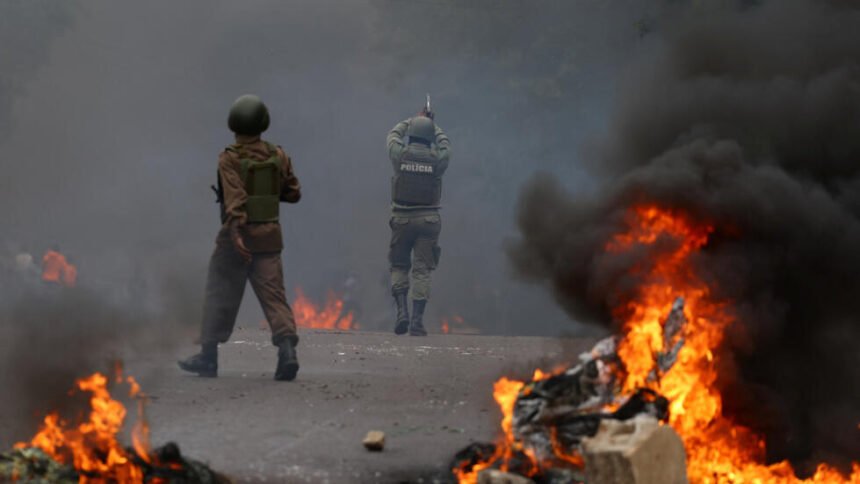Mozambique is in turmoil as widespread protests sweep across the nation, with demonstrators clashing with security forces who have resorted to tear gas and rubber bullets to disperse crowds.
The catalyst for these protests is the outcome of last month’s presidential election, in which the ruling Front for the Liberation of Mozambique’s candidate secured another term, extending the party’s dominance to over fifty years. Opposition groups and citizens have rejected the election results, sparking an unprecedented wave of protests that began in the capital, Maputo, and quickly spread to other cities, where protesters encountered severe police responses.
Thursday’s protest, on November 7, has been the largest since the election results were announced. Amnesty International reports that at least 20 people have lost their lives, with hundreds more injured or detained as security forces escalate their response, deploying lethal force, rubber bullets, and tear gas even in residential areas. The authorities’ approach has drawn widespread condemnation, underscoring Mozambique’s troubling disregard for dissenting voices.
This wave of violence and the reported deployment of military-grade weapons, including rifles and armoured vehicles, reveals a government prioritising the suppression of opposition over fundamental rights such as freedom of expression, peaceful assembly, and association. Such actions not only contravene international human rights laws but also create a climate of fear, dissuading citizens from participating in political processes.
Reports of the use of tear gas is rather concerning, this reflects the government’s extreme measures to suppress opposition. This pattern of repression suggests a deliberate strategy to silence political opponents and deter civil society from questioning electoral outcomes or governmental authority.
The government’s actions present a serious threat to political cohesion and exacerbate the marginalisation of opposition voices, who now face not only political isolation but also threats to their safety. Additionally, the crackdown includes restricted internet access and social media blackouts, curtailing the free flow of information and stifling citizens’ capacity to organise and communicate. These measures undermine transparency, which is crucial for democratic governance, raising serious concerns about the government’s commitment to fundamental freedoms.
International attention is now crucial. The government under President Filipe Nyusi must be urged to end its violent and pervasive crackdown on human rights and to uphold citizens’ rights to freedom of expression, peaceful assembly, and association.
Regional organisations, particularly the Southern African Development Community (SADC) and the African Union, must take a definitive stance against these violations and advocate for human rights protections. SADC’s silence on this matter is particularly concerning for an organisation committed to fostering peace and stability in the region. The unrest in Mozambique has regional implications, potentially disrupting trade and the movement of goods within the SADC member states and beyond. Although the SADC chairman has scheduled a meeting for next week to address the crisis, the situation warrants an emergency response to provide immediate support to the people of Mozambique.
Elevation News will continue to monitor and report on the unfolding political unrest in Mozambique, as the region watches closely for further developments.










